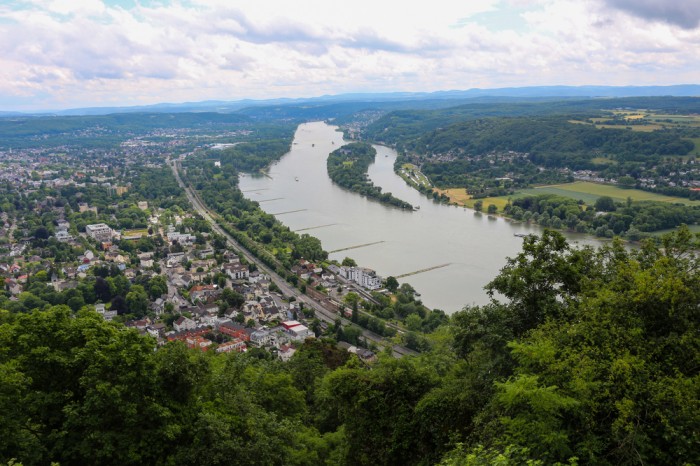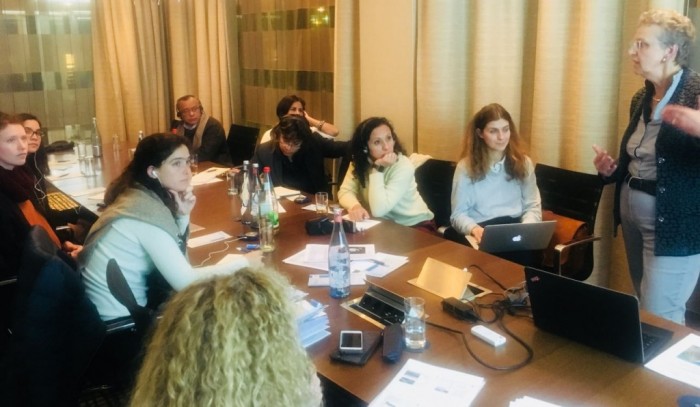 Representatives from various Mexican institutions traveled to the Netherlands and Germany to reflect and exchange experiences on water-related adaptation actions established in the Nationally Determined Contributions (NDC) under the framework of the Paris Agreement. During the trip participants wrote articles to reflect on the different topics.
Representatives from various Mexican institutions traveled to the Netherlands and Germany to reflect and exchange experiences on water-related adaptation actions established in the Nationally Determined Contributions (NDC) under the framework of the Paris Agreement. During the trip participants wrote articles to reflect on the different topics.
In the framework of the exchange trip, the Mexican delegation visited the International Commission for the Protection of the Rhine (ICPR). Not only is the ICPR an institution that implements important climate change adaptation actions, but it also showed that extreme events may even turn into detonators of joint actions with crucial impacts on water management.
 The International Commission for the Protection of the Rhine (ICPR) is an institution of international cooperation, which has been implementing actions to improve water quality and ecological recovery of the Rhine River over the past six decades . This European river connects the Alps to the North Sea and represents the most important cultural and economic axis across Central Europe. In its basin live 60 million people in nine different countries. The achievements of this commission are a great example of actions of climate change adaptation based on ecosystems.
The International Commission for the Protection of the Rhine (ICPR) is an institution of international cooperation, which has been implementing actions to improve water quality and ecological recovery of the Rhine River over the past six decades . This European river connects the Alps to the North Sea and represents the most important cultural and economic axis across Central Europe. In its basin live 60 million people in nine different countries. The achievements of this commission are a great example of actions of climate change adaptation based on ecosystems.
The basic principle of this international cooperation is to understand that when it comes to water there are no national or international boundaries. The ICPR is an example of success of joint efforts, as the representatives of the governments of Switzerland, France, Germany, Luxembourg, the Netherlands and the European Commission cooperate closely in order to harmonize the interests of use and environmental protection in the Rhine basin. The focal points are the sustainable development of the Rhine and its alluvial areas as well as good water quality in the basin. This international cooperation is legally based on the Convention on the Protection of the Rhine, as well as on several European directives and regulations that require a coordinated implementation throughout the basin, such as the EU Water Framework Directive and the EU Floods Directive, among others.

Various challenges have been faced in the past and it was precisely a fire in a manufacturing facility of chemical products that ended up spilled on the Rhine and sparked the interest of governments to cooperation. Together, they have achieved a reduction of pollution from point sources, which has led to less contamination by heavy metals and other pollutants. Projects for the prevention of floods caused by the effects of climate change are being developed and mitigation measures implemented.
The decision-making of this cooperation takes place through assemblies with the participation of representatives of governments with the right to voice and vote. In addition, the recommendations of civil society are taken into account, which has proved crucial to the success of this cooperation. Therefore, in the last decade of the last century, ICPR activities were a model for many other river basins.

The study trip took place from November 27 to December 8, 2017. Representatives from the following institutions attended: the Directorate General for Climate Change of the Ministry of Environment and Natural Resources (SEMARNAT), the National Water Commission (CONAGUA), the National Institute of Ecology and Climate Change (INECC), the Mexican Institute of Water Technology (IMTA), the Ministry of Urban Development and Environment of the State of Yucatan (SEDUMA) and the Technical Committee of Groundwater of River Basins of Yucatan Peninsula.
